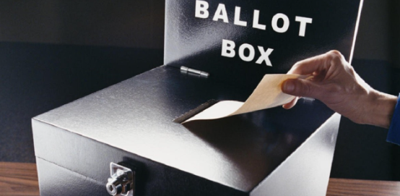
PHILADELPHIA – Pennsylvania’s election officials can’t toss mail-in ballots just because they have the wrong date on them, a federal appeals court has ruled in striking a state rule that cost 10,000 citizens their vote in 2022.
The U.S. Court of Appeals for the Third Circuit on Aug. 26 struck a 2019 law that said mail-in ballots that aren’t dated or have the wrong date on their envelope can’t be counted. The decision affirms Erie federal judge Susan Paradise Baxter’s ruling earlier this year.
Voter Bette Eakin was joined by the Democratic Senate Campaign Committee and the Pennsylvania chapter of the American Federation of Teachers in opposing the rule, while Republican groups mounted a defense on behalf of Pennsylvania's 67 county boards of elections named as defendants.
Judge Baxter said the date requirement serves no state interest. The Third Circuit agreed, finding it unconstitutional.
“Casting a ballot and having it counted are central to the democratic process,” Third Circuit judge D. Brooks Smith wrote.
“While the Commonwealth has raised legitimate interests related to voting, we see only tangential links, at best, between these interests and the date requirement that Pennsylvania imposes on mail-in voters.
“The date requirement does not play a role in election administration, nor does it contribute an added measure of solemnity beyond that created by a signature. And only in the exceedingly rare circumstance does it contribute to the prosecution of fraud.”
In 2022, more than 10,000 ballots were discarded for failure to include the date on their outer envelopes. The plaintiffs called the date requirement a compliance test put in place to determine how well voters can follow instructions.
Eakin filed suit the day before Election Day in 2022. The previous week, the state Supreme Court had ordered election officials to not count those mail-in ballots that didn't have the date written on their envelopes.
Doing so violated the rights of people who met the simple qualifications to vote, the suit claimed. Those requirements are being at least 18 years old and a citizen of the United States for at least month; residing in the district they intend to vote in for at least 30 days and Pennsylvania for 90; and not being jailed on a felony within the last five years.
There are six instructions for mail-in ballots, the last being the date on the outer envelope.
The state Supreme Court was split 4-3 on whether to discredit ballots without the date. The minority found the requirement likely violates the Materiality Provision of the Civil Rights Act.
A different date requirement case in federal court held that wasn't the case, but Baxter noted that Third Circuit ruling didn't resolve the First Amendment right-to-vote claims in Eakin's case.
Defendants said Pennsylvania's rules were helpful in fraud detection, though Baxter and the Third Circuit said that argument was unsupported by evidence.
“(T)he date requirement can narrowly advance the Commonwealth’s interest in fraud detection and deterrence – but only in the extremely rare instance involving a hapless fraudster who obtains a recently deceased voter’s mail-in ballot, completes the ballot, and adds a date on the return envelope postdating the deceased voter’s death,” Smith wrote.
“Over six years and across multiple elections in which thousands of Pennsylvanians have voted by mail, this fact patter has apparently manifested itself only once.”






